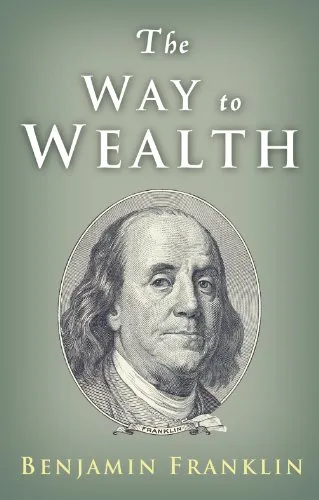
Benjamin Franklin was known for being crafty, intelligent, inventive and being great at finances. The Way to Wealth is a short essay he wrote that outlined many of the short lessons that he considered valuable to anyone who was pursuing a path of wealth and prosperity.

Hard Work
Much of the book discusses the value of hard work and why it's important to work hard on the path to wealth.
“Then plow deep, while sluggards sleep, and you shall have corn to sell and to keep.”
“Work while it is called to-day, for you know not how much you may be hindered to-morrow.”
“One to-day is worth two to-morrows.”
“At the working man’s house hunger looks in, but dares not enter.”
Ever hear successful people talk about how they wake up before the competition and put the work in while they're asleep. They claim that nobody outworks them, and that's what got them to the top and that's what is keeping them up there.
Hard work is hard. It's not a glamorous thing that you flaunt as you walk the street. It's something that you do for yourself. It's something that goes mostly unrecognized because it's such a personal act.
When you're a professional athlete, you wake up early in the morning to hit the gym so you can stay in the best possible shape and beat your competition.
But people don't see that gym work that you put in. Those long, hard hours are for yourself. They aren't for showing off, they're for showing up.
Diligence
Diligence and hard work go hand in hand. Being diligent means you're patient enough to sit down and grind on what's important.
“Diligence is the mother of good luck.”
“Constant dropping wears away stones; and by diligence and patience the mouse ate in two the cable; and little strokes fell great oaks.”
"little strokes fell great oaks" is one of my top favorite quotes. Working hard and chipping away at whatever it is that you're trying to achieve is the key to making your dreams come true.
Little strides, taken each day may make the journey long and hard, but it will also make the journey walkable. Following your journey is not easy, it requires you to show up day after day to put the diligent work in to achieve.
Poverty
“A small leak will sink a great ship.”
“Buy what thou hast no need of, and ere long thou shalt sell thy necessaries.”
Poor Richard Says: “It is easier to suppress the first desire, than to satisfy all that follow it.”
"Get what you can, and what you get hold,
’Tis the stone that will turn all your lead into gold.”
The book is obviously about wealth attainment and Franklin's views on how to get wealthy are rather simple: Save money by working hard, being diligent and staying in control of your desires so that your incomes outweigh your out-flows.
The last quote is another of my favorites. Getting what you can means working as hard as you can to the best of your ability to earn income. Holding what you get means that you're controlling your desires so that you can save and invest.
"The stone that will turn all your lead into gold" refers to the alchemist stone but Franklin uses it here as a way of referring to the fact that if you learn how to make more income and how to reduce your out-flows, you'll always be in control of your wealth.